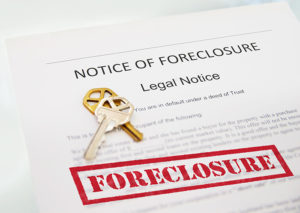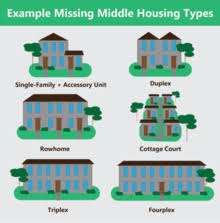Foreclosure is not a pleasant topic for any homeowner to think about. But it’s a potential risk for anyone who owns a residence. Naturally, as a homeowner, you want to do everything you can to avoid this situation. One way to do this is by keeping track of economic and industry trends and data. You’ll find there’s a connection between the health of the economy and home foreclosures.
Learn the facts about home foreclosure as well as the many factors that can warn you of an approaching economic downturn.
What Is Foreclosure?
When you take out a loan to buy a home, you agree to a monthly mortgage payment. If you miss a payment, your lender may give you a two-week grace period to submit the money without a penalty. Maybe you missed the payment because of a snafu at the bank or a late paycheck from work. Missing one mortgage payment usually results in nothing more than a late fee. But consistent nonpayment on a mortgage means you are defaulting on the loan. This is when foreclosure enters the picture.

In foreclosure, the lender sells the home or takes possession of it if it doesn’t sell. You are no longer the owner and must move out. The foreclosure process can take several months or even a year. The lender will send you documentation regarding the process.
The Reasons Behind Home Foreclosure
Financial setbacks can certainly cause a homeowner to default on their home loan. Of course, financial trouble can result from a number of things.
Examples include:
-
Loss of income due to illness or injury
-
Death of the household’s breadwinner
-
Divorce
A struggling economy can also lead to a rise in home foreclosures. A high rate of unemployment, rising taxes, and low consumer confidence are all signs of an economic downturn. All these factors come together like a line of dominoes.
A higher rate of unemployment in the country means people are spending less money on goods and services. Less spending on goods and services results in employee layoffs. This means there is even less money in circulation, and the economy stops growing.
As a homeowner, it’s important to be aware of economic trends and data that may point to a downturn. If you know a challenging financial period is coming, you can take steps to avoid defaulting on your home loan and foreclosure. Putting away more money or refinancing your loan are two examples. Sometimes, monitoring industry trends and data allows you to see an economic downturn nine months or more before its greatest effects are felt.
Which Job Sectors Are Most Vulnerable to Layoffs?
Layoffs in certain job sectors can point to an economic downturn. This data is especially important if you are in one of these lines of work. You can find employment trends in different job sectors by visiting the U.S. Bureau of Labor Statistics.
Hospitality Jobs
Hotel managers, reservations agents, spa managers, wedding coordinators, and event planners: These are just a sampling of jobs in the hospitality industry.
High unemployment in the hospitality industry signals an economic downturn. When consumers lack confidence in the economy, they tend to stay home. A hotel or spa with fewer guests is going to lay off workers to save on payroll costs.
Food Service Jobs
Along with skipping vacations, cost-cutting consumers are likely to stop eating out or at least do so less frequently. This results in less profit for restaurants and diners. As a result, cooks, servers, bussers, and restaurant hosts are laid off.
Beauty Service Jobs
Barbers, hair stylists, and manicurists are all in the beauty services industry. Layoffs in this field signal the reluctance of consumers to spend money in these areas. Consumers worried about their financial situation put off or skip these types of services.
Retail Jobs
Retail workers like salespeople, store managers, and inventory stockers are also at risk when the economy slows down. Consumers are keeping their money instead of spending it on clothing, electronics, furniture, and other items sold in stores. A business with fewer customers and falling profits is going to lay off workers to decrease payroll and save money.
Jobs in Education
You may not expect the field of education to experience layoffs due to an economic downturn. But workers in this field who are paid hourly wages are vulnerable to being laid off. Cafeteria workers, crossing guards, teaching assistants, and custodians are hourly workers in this field. Though these support staff members are important for operating a school, they’re likely to be laid off because of falling tax revenue.
A Steady Rise in Interest Rates
Paying attention to interest rates is another way to spot an economic downturn. A gradual increase in mortgage interest rates means fewer people will be able to afford to buy a home. Higher interest rates mean fewer home sales and less investment in the growth of the economy.
An Increase in Homes Lingering on the Market
Another sign of an economic slowdown is an abundance of homes that aren’t selling. Do you have a lot of homes for sale in your neighborhood or town? If you’re a house flipper, you’re definitely going to be aware of homes lingering on the market. Consumers are not buying homes due to job loss, high mortgage interest rates, high home prices, or all of the above.
Drastic Price Changes of Homes for Sale
Drastic drops in home prices are another sign of an economic downturn. A lack of response from buyers due to a down market has forced homeowners to drop their selling prices. This is a symptom of an market that’s unstable and, thus, risky.
What Are the Foreclosure Rates in Your State?
The home foreclosure rate in your area can provide you with insight into the economic conditions in your state. Is there a high incidence of home foreclosures? Compare that rate to the overall home foreclosure rate in the nation. This gives you an idea of the way the economy is headed in your state.
A Plan of Action
If a faltering economy leads you to default on your mortgage, there are things you can do to avoid foreclosure. The most important step to take is to stay in communication with your lender.
Let your lender know the specifics of your situation. In many instances, you can work out a loan modification on your home. Responsible lenders do all they can to keep you in your home.
The Making Home Affordable program is another resource you can use if you are facing foreclosure. This government organization can provide you with counseling, guidance, and support if your home is at risk.
As you can tell, trends and housing industry data can both give you insights into the state of our economy. Understanding the effects of an economic downturn and their connection to home foreclosure can help you avoid losing your house.
At Evergreen Investments, we offer a variety of valuable services to property owners. Contact us today!




0 Comments